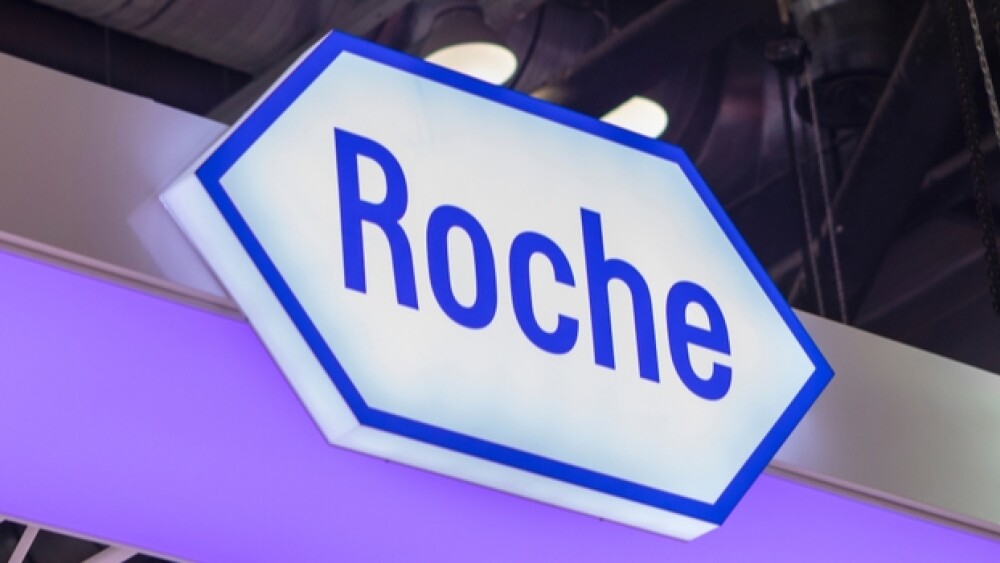Hospitals and laboratories will be able to run the test on Roche’s fully automated cobas 6800 and cobas 8800 Systems, which are already in wide use in the U.S. and internationally.
testing / Shutterstock
The U.S. Food and Drug Administration (FDA) granted Roche’s cobas SARS-CoV-2 Test Emergency Use Authorization. Hospitals and laboratories will be able to run the test on Roche’s fully automated cobas 6800 and cobas 8800 Systems, which are already in wide use in the U.S. and internationally.
This test is for the coronavirus that causes COVID-19, which was classified a pandemic by the World Health Organization this week. To date, there are 135,232 confirmed cases of COVID-19 worldwide, with 1,701 in the U.S. Total, 4,981 deaths have been attributed to the disease. The predominant cases confirmed are in China (80,942), Italy (15,113) and Iran (10,075). The disease is a form of viral pneumonia that in a small percentage of cases, can be deadly. It is particularly dangerous for the elderly and people with compromised immune systems.
The new test can give results in about three-and-a-half hours and can run up to 4,128 test results per day. The Emergency Use Authorization allows the test to be conducted in the U.S. and in countries that accept the CE mark showing they conform to European standards.
The U.S. testing was slow to ramp up because of flawed test kits distributed by the U.S. Centers for Disease Control and Prevention (CDC) in February.
The company indicates that there are about 695 cobas 6800 systems around the world and 132 of the cobas 8800s, with “more than 100” in the U.S. The cobas 8800 system is the faster of the two, able to churn out more than 4,100 tests daily at their peak efficiency, not taking into account any instrumentation, reagent or technician issues.
“Providing quality, high-volume testing capabilities will allow us to respond effectively to what the World Health Organization has characterized as a pandemic,” said Thomas Schinecker, chief executive officer of Roche Diagnostics. “It is important to quickly and reliably detect whether a patient is infected with SARS-CoV-2. Over the last weeks, our emergency response teams have been working hard to bring this test to the patients. CE-mark certification and the FDA’s granting of EUA supports our commitment to give more patients access to reliable diagnostics which are crucial to combat this serious disease.”
In an interview with Bloomberg, Schinecker said, “We are increasing the speed definitely by a factor of 10.”
Testing for the virus is a significant step in slowing the spread of the disease. It is one factor that has been identified in South Korea’s success in controlling the virus. South Korea has 7,869 confirmed cases. About 60 people have died. The country, which isn’t out of trouble yet, nonetheless has taken a slightly different approach than China or Italy, which has relied on drastic lockdowns and travel bans. South Korea provides personalized text messages identifying new coronavirus cases nearby with links to detailed information showing where the infected patients have traveled. The Korea Centers for Disease Control and Prevention established a coronavirus hotline that provides twice-daily updates in English and Korean.
More relevant, the country has tested more than 222,000 people and has a capacity to test 15,000 people daily. If physicians suspect a coronavirus infection, the test is free. They have also established about 50 drive-through coronavirus testing clinics throughout the country. Collection of sputum takes approximately 10 minutes, but the patient doesn’t have to leave the vehicle. Results generally come back within 24 hours.
The Roche test is the third granted emergency approval by the FDA and the first commercially available. The U.S. and Europe have been criticized for being slow to test for the virus.
Quest Diagnostics, LabCorp and the Mayo Clinic have launched COVID-19 tests as well. Quest and LabCorp are the two largest private laboratories in the U.S., with Mayo also having national and international reach. The Cleveland Clinic is also expected to have onsite testing capabilities soon. Other healthcare institutions are likely to as well.
“We heard what the federal government was telling us,” William Morice, president of Mayo Clinic Laboratories, said. “We anticipated that this could potentially overwhelm the CDC’s capacity to do the testing, so we chose to continue to develop the test.”
The FDA also loosened up some of its oversight, issuing enforcement discretion and not objecting to the New York State Department of Health (NYSDOH) authorizing some of the state’s laboratories to begin testing for COVID-19 after validating their tests and notifying the agency. Under that approach, labs will inform NYSDOH of their validation data within 15 days instead of pursuing an Emergency Use Authorization with the FDA.
“These actions today show our commitment to working around the clock to help expedite the availability of tests,” said FDA Commissioner Stephen M. Hahn. “This NYSDOH action shows the FDA’s extreme flexibility and adaptability during times of public health emergencies. As a practical matter, what this action means is that labs, authorized by NYSDOH, will not engage with FDA to begin patient testing. Nor will they get an Emergency Use Authorization from the FDA. These labs will interact solely with NYSDOH, which should expedite the availability of patient testing in New York State. This action demonstrates FDA’s responsiveness to the needs of our country during this time.”





